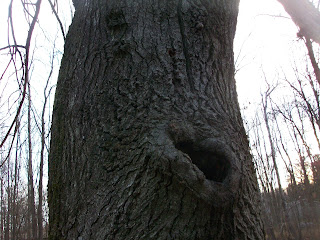I stumbled across these words today in Walter Scott's Lord of the Isles, and cannot help thinking of my native Michigan where "the gales of November come early." A strong Westerly wind has blown all day today, and tonight is our first real bit of snow of the season. I'll update some morning pictures to this post. Maybe it will stick!
Autumn departs, but still his mantle's fold
Rests on the groves of noble Somerville,
Beneath a shroud of russet dropp'd with gold,
Tweed and his tributaries mingle still;
Hoarser the wind, and deeper sounds the rill,
Yet lingering notes of silvan music swell,
The deep-toned cushat, and the redbreast shrill:
And yet some tints of summer splendour tell
When the broad sun sinks down on Ettrick's western fell.
Autumn departs, from Gala's fields no more
Come rural sounds our kindred banks to cheer;
Blent with the stream, and gale that wafts it o'er,
No more the distant reaper's mirth we hear.
The last blithe shout hath died upon our ear,
And harvest-home hath hush'd the changing wain,
On the waste hill no forms of life appear,
Save where, sad laggard of the autumnal train,
Some age-struck wanderer gleans few ears of scatter'd grain.
Deem'st thou these sadden'd scenes have pleasure still,
Lovest thou through Autumn's fading realms to stray,
To see the heath-flower wither'd on the hill,
To listen to the wood's expiring lay,
To note the red leaf shivering on the spray,
To mark the last bright tints the mountain stain,
On the waste fields to trace the gleaner's way,
And moralise on mortal joy and pain?
O! if such scenes thou lovest, scorn not the minstrel strain.
No! do not scorn, although its hoarser note
Scarce with the cushat's homely song can vie,
Though faint its beauties as the tints remote
That gleam through mist in autumn's evening sky,
And few as leaves that tremble, sear and dry,
When wild November hath his bugle wound;
Nor mock my toil, a lonely gleaner I,
Through fields time-wasted, on and inquest bound,
Where happier bards of yore have richer harvest found.
P.S. Well, the snow did not stick much, but here some prime examples of the wooded wilds of Michigan in the cold November of the year. Father, the patriarch of our family, has named our home Oak Chapel.
Our sylvan arch. In the greenwood, ivy winds around it, forming a trellis gate into our back woods.
Some snow on the leaves.
The cut into the heaths behind our home.
Ah, the clouds have parted after last night. Perhaps a sunny day is ahead of us. (Usually, a dull blue-gray covers the sky in Michigan from October to March. Michigan is one of the most cloudy states in the Union).
The roaring "white" birch (technically "gray"). In the summer, the aspen and birch sing together like falling rain in a golden light.
Turning behind to the East, the Sun rides up over the shoulders of the land.
The purple heath.
The wall of birch on the left
The hay field. Long grass is cut every year from this field, and Queen Anne's Lace blooms among the hay.
I quite often stand at this rise in the heath and muse on my tasks, rest in the quiet of the land, or determine the course of the wind. On the left, you may see some domicile carved into the recesses of the trees against the coming of the feared North Wind. Looking to the north...
The south...
The east...
The west...
A little birch in a grove
In these woods, the trees spread out a little more.
The knotted birch
Hope springs eternal... A remnant of the greenwood.
God's home for some little creature, no doubt.
The "paternal hearth" once more.




















No comments:
Post a Comment